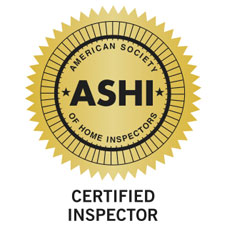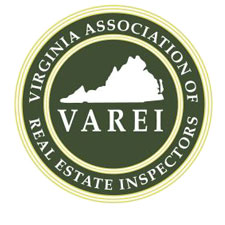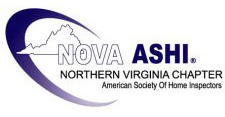Resources
To facilitate your inspection, please find additional information listed below. As always, should you have any questions, please give call 703-554-3906 or email leehigh177@gmail.com.
Helpful Links
Below is a list of link that are helpful for your home inspection:
- Environmental Protection Agency (EPA)
- Mold
- Synthetic Stucco
- National Association of Home Builders
- American Society of Home Inspectors.
- The Asbestos and Mesothelioma Center
Understanding Plumbing
Plumbing has come a long way since the days of outhouses and hand pumps. We rely on the convenience of today’s plumbing systems so much that we take their reliability for granted.
Unfortunately, many home owners don’t know the basics of their plumbing systems. When a major problem occurs, they are left at the mercy of a contractor, trusting his estimate of the damage and repairs. Although most contractors are honest, it helps to know as much as possible when hiring a plumber.
This information is intended as a general home owner’s guide to the basics of residential plumbing. For additional information, it is recommended to consult a reputable plumber, home repair manual or a local ASHI home inspector.
General Tips
Listed below are some general tips to prevent problems and costly repair bills:
Clean pop-up sink drains and strainers every month
Try to keep fat, greases and coffee grounds out of drains and dishwashers.
Never pour paint or chemicals down drains, they may damage pipes or interfere with the proper functioning of septic systems.
Flush the garbage disposal with one pot of hot water and a half cup of baking soda each month.
Take note of improvised pipe repairs using caulk or tape or other temporary repair materials.
Periodically check all fixtures – tubs, shower stall, sinks, basins and toilets – making sure they’re free of cracks, rust or other forms of surface damage.
Make sure caulk is in good condition. Fixtures should be firmly attached to the wall or door, especially hung sinks and toilets.
Periodically inspect your water heater for signs of rust or leakage. Don’t mistake condensation for leaks. If the tank is leaking, it must be replaced. Check for discharged water from the relief drain valve – if water is present, have a plumber check it immediately.
Prevent sediment build-up in gas or oil-fired water heaters by draining a few gallons of water out every six months (see your owner’s manual). Gas-fired heaters should be professionally serviced every other year; oil-fired heaters should be serviced annually.
Make sure your sump pump (if you have one) is connected to surface grade or to a storm drain and not a septic tank or sewage system. Those systems are not capable of handling large amount of water at one time. The pump also should have its own (dedicated) electrical outlet.
Understanding Electricity
Electricity has become an indispensable fact of life in today’s world. With it we control our comfort and
many of the functions of daily life in our homes.
And yet, electricity also brings with it the potential for great danger. Inadequate wiring and improper
installation can create serious, and even lethal conditions. Homeowners should think twice before
working with something as dangerous as electricity. Instead, hire a licensed electrician to do all but the
simplest of tasks. It is a good idea to familiarize yourself with the basics of electricity to help you
operate safely.
A home’s electrical system most often originates at the main distribution panel. It is then divided into
branches, called circuits, and connected by wires to wall outlets, appliances, and switches throughout
the house.
Danger Signs
Homeowners should be prepared for electrical repairs if any of the following danger signs are observed:
- Dangling wires and/or overuse of extension cords
- Unsupported cabling
- Overheated wires
- Open junction boxes
- Splices not enclosed in a metal or plastic box
- Heat emanating from switches, outlets, junction boxes or service panels
- Wires past doorways, radiators, under carpets
- Dimming lights
Safety Rules
Always disconnect a circuit before making repairs on it or installing a light fixture.
Never work with, or near, electricity when hands or feet are damp.
Never remove service panel covers.
Don’t use outlet multiplier plugs to connect lamps and appliances whose amperage totals more than the capacity of the circuit.
Avoid using extension cords whenever possible. Never run them across hallways or doorways, under carpeting or furniture, or through walls. Never staple them in place.
Never replace blown fuses with larger amp fuses.
Don’t cut the grounding (3rd) prong of a plug to fit it into a two-hole receptacle.
Keep electrical appliances (e.g., hair dryer., radios, shavers) away from bath tubs, sinks and showers.
Don’t pull cords out of receptacles by the wire; hold by the plug and pull.
Replace worn or frayed lamp and appliance wires.
Don’t try to extinguish small electrical fires with water. Use baking soda OR a type “C” household halon extinguisher, which is rated for electrical fires.
All electrical work done in a house should be inspected and approved by the local authorities.
When in doubt, call a licensed electrician.



